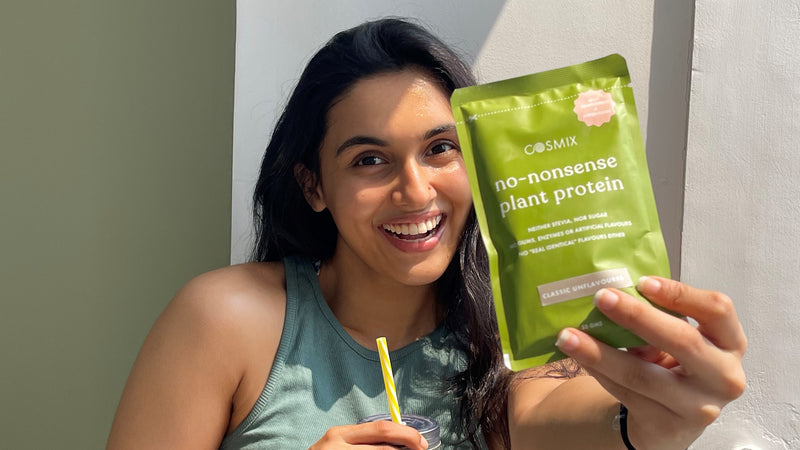At Cosmix, we’re always on about balanced healthy meals. So, if you’re expected to have nutritious meals, why exactly do you need Cosmix? Well, here’s the deal. All the nutrition you need can be divided into two groups – Micronutrients and Macronutrients. Making sure that your body is getting enough of both may sound like a herculean task, but I promise you it really isn’t.
What are macronutrients?
Most of the nutrients your body requires come from Macronutrients - Carbohydrates, proteins, fats, fiber and water. Your daily meals already include all of these nutrients, the trick is to find a balance. There are good fats and bad fats, carbs that are good for your body and carbs that your body finds extremely hard to process. The same goes for fiber and minerals.
What are micronutrients?
With the nutritional value of food decreasing, micronutrients are a little more difficult to come by. 'These nutrients consist of vitamins and minerals that the body requires in trace amounts.' Even so, they are crucial to a healthy body. Our daily staples tend to leave out these micronutrients and here’s where Cosmix steps in.
Consuming and absorbing Vitamins is a little tricky, since they are organic, they are easily broken down by heat, air, or acid. This means, they lose their value when overcooked or when exposes to air. It’s the opposite with minerals. They are inorganic and cannot be broken down this way. This means that when you consume minerals, they retain the same properties as the soil and water your food has come from. This also makes it difficult for your body to absorb them.
Each Cosmix mix is tailored to include micronutrients in their most potent form, for a targeted issue. The herbs and superfoods used in each mix, are chosen, sourced and processed to deliver their maximum nutritional value.
Let’s talk carbs
In the case of carbohydrates, you need to understand the difference between simple and complex carbohydrates. 'The difference is in the chemical structure which dictates how quickly the sugar is released and absorbed by the body.' Simple carbs, release sugar faster and don’t contain any vitamins, minerals, or fibers. They are the ‘bad’ carbs and are generally made with processed and refined sugar. Complex carbs on the other hand, are processed by the body much slower and also contain various nutrients.
Good fat bad fat?
If you thought all fats were bad, then you have been a victim of the propaganda machine, much like us. But I have news for you, there are two kinds of fats in our diet, saturated and unsaturated. What your body needs, is the latter. Saturated fats, contain cholesterol, which we all know clogs arteries and is terrible for our bodies, in large quantities. Yes, I said ‘in large quantities’, because your body does still require a small amount of cholesterol, to aid in the production of hormones.
Unsaturated fats on the other hand are crucial to maintain the elasticity of cell membranes and increase cell growth and regeneration. This means healthier skin and shiny hair too. They also regulate metabolism, help improve blood flow and most importantly, they aid the delivery and absorption of fat-soluble vitamins A, D, E and K into the body.

So how do I find a balance?
Let me preface this by saying that each of us is unique. While our bodily functions are all the same, our bodies have their own quirks and require different levels of nutrition to function. However, for the sake of explanation, let’s consider an average human being who requires around 2000 calories a day to function and remain healthy. For such an individual, nutrition experts recommend a daily serving of:
- 282 gm of carbohydrates
- 30 gm of fats
- 8 – 1 gm of protein per kg of bodyweight.
- 20-35 gm of fibre
- 2 litres of water
There are macrominerals as well that can be included here. 'The minerals that are required in larger amounts, which include - calcium, phosphorus, magnesium, sodium, potassium, chloride, and sulphur.' All you have to do is make sure you include foods that are known to include these minerals, like bananas, onions etc. Each vitamin and mineral have a key role to play to keep your body up and running. Find what works for your body, or if possible, consult a nutritionist.
--
If you've been trying to include more micronutrients in your diet and don't know where to get started - have you checked out our range of superfood blends yet?











